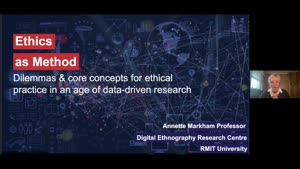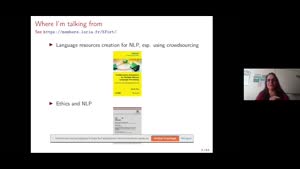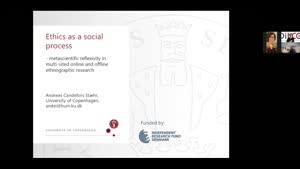Social patterns in adolescent social media writing: On the interaction of age, gender, and education: DiLCo Lecture Series 2022 (17 November) - Reinhild Vandekerckhove - Universität Hamburg
- Lecture2Go
- Videokatalog
- F.5 - Geisteswissenschaften
- Sprache, Literatur, Medien (SLM I + II)
- Digital language variation in context (DiLCo)
Videokatalog
Social patterns in adolescent social media writing: On the interaction of age, gender, and education: DiLCo Lecture Series 2022 (17 November)
While research on informal computer-mediated communication tends to lay bare distinct gender patterns, we must be extremely cautious when generalizing in terms of female or male writing styles. Extensive research on Flemish adolescent social media writing shows that gender, age and educational track strongly interact and that isolating one of these variables leads to oversimplification of the social dynamics of interactive online writing. I will present a survey of our research of the past few years and make a case for adopting a multidimensional perspective by integrating several social variables and a divergent set of features into the research design, by investigating the impact of both the profile of the writer and that of the interlocutor(s) and, finally, by combining production research with perception research.
Our research shows that there is no such thing as e.g. ‘teenage girl social media writing style’, even though different sets of genre markers display distinctly different gender correlates. Apart from that it lays bare subtle preferences and sensitivities related to educational track and by extension social background (SES). Finally, it offers a unique view on the strong exploitation of the genre by a group that is often disregarded in CMC-research, i.e., youngsters with a working-class profile.
Reinhild Vandekerckhove is full professor in Sociolinguistics and Dutch Linguistics at the University of Antwerp, where she is a member of the research group CLiPS. Her research focuses on informal computer-mediated communication, the dynamics of adolescent peer group language and regional versus social variation in Flemish social media writing. She has supervised several projects on these topics and published in a wide range of journals. She is a member of the Royal Academy for Dutch Language and Literature and of the advisory board of the Dutch Language Institute.
DiLCo Lecture Series 2022 aims to showcase cutting edge international research on digitally language and communication by both senior and younger researchers from across the world. We wish to present research that explores digital language and communication by drawing on key concepts and topics in socio-cultural linguistics, such as community, context, identity, mediated interaction, multimodality, and linguistic change. We particularly welcome presentations of innovative methods that cut across traditional disciplinary boundaries.
---
DiLCo (‘Digital language variation in context’) is a 3-year international research network initiated in 2021 at the University of Hamburg. The network brings together researchers from Europe and USA with expertise in computational, interactional, and ethnographic approaches to digital language and linguistics. It aims to provide a platform for the development of interdisciplinary ideas in digital language and communication research, and for early-career capacity building.

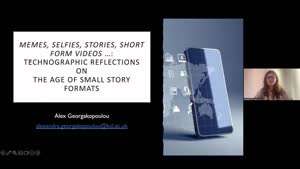
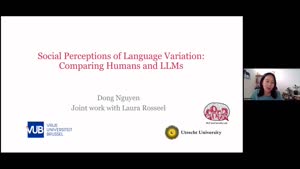
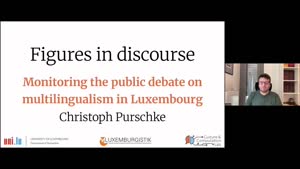
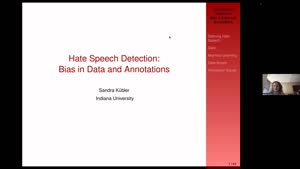
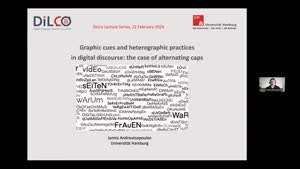
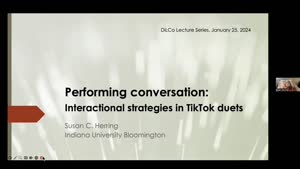
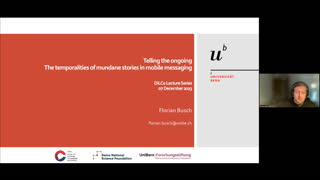
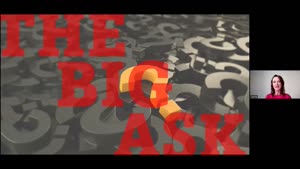
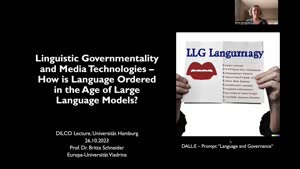
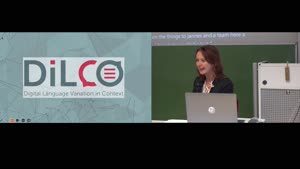
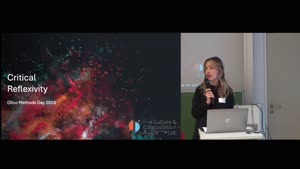
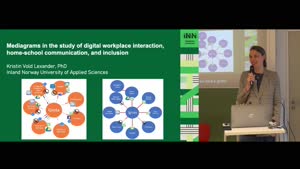
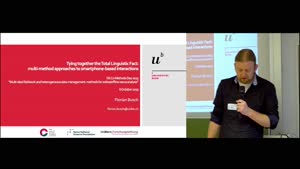
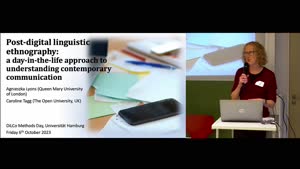
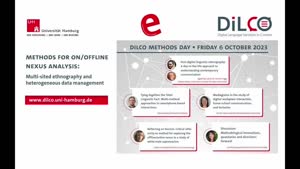
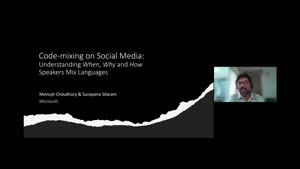
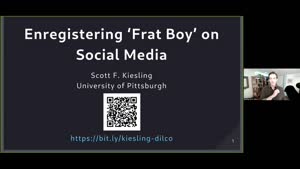
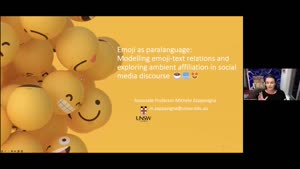
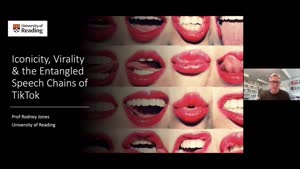
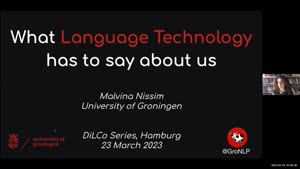
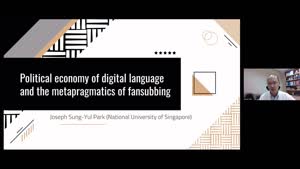
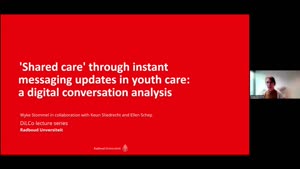
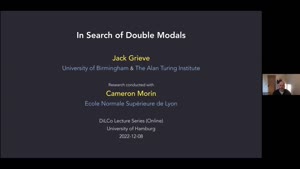
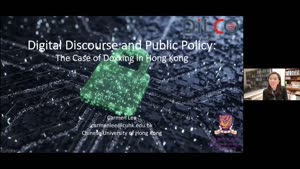
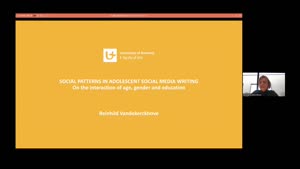
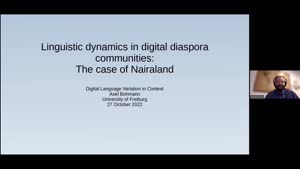
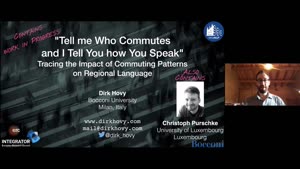
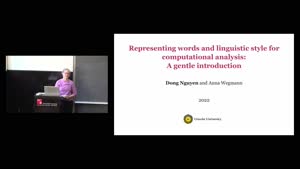
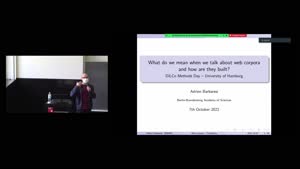
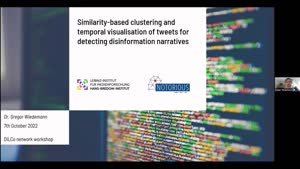
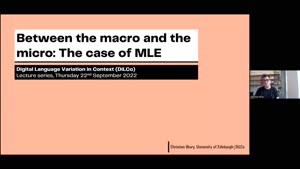
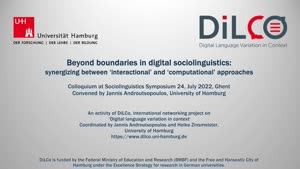
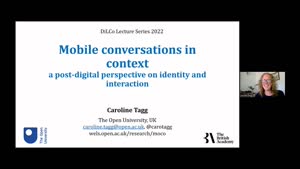
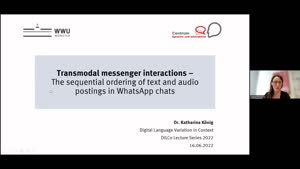
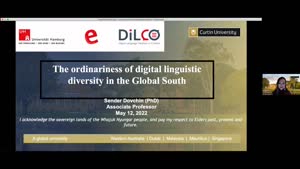
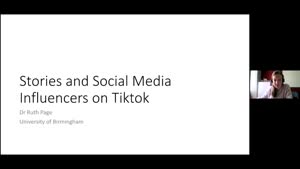
![Miniaturansicht - Graphic Prosody and political discourse on Greek Reddit [Presentation in Greek]](https://lecture2go.uni-hamburg.de/images/00.000_video-61074_2022-03-30_18-30_m.jpg?lastmodified=1663761108652)
